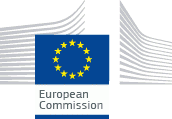
Եվրահանձնոժողովը դիմել է ԵՄ՝ կանանց դեմ բռնության դեմ պայքարելու միջազգային բանաձև ընդունելու համար (անգլերեն)
Brussels, 4 March 2016
Today, the European Commission has proposed for the European Union to ratify the Council of Europe's Istanbul Convention, a comprehensive international treaty on combatting violence against women and domestic violence.
This reaffirms once more the European Union's solid commitment to fight gender-based violence.
Věra Jourová, Commissioner for Justice, Consumers and Gender Equality said: "Our proposal sends a clear message: victims of violence against women must be better protected across Europe. One in three women in the EU has experienced physical or sexual violence, or both. More than half of all women have experienced sexual harassment after the age of 15. These figures are unacceptable and this goes against our values. Today's proposal for the EU to ratify the Istanbul Convention is a step forward both for our fight against violence and in guaranteeing gender equality. To ensure coherent implementation at all levels, I also call on those Member States who have not yet ratified the Convention to do so swiftly."
The Istanbul Convention requires its parties to improve the protection of victims of violence and ensure prosecution of offenders, in the following respects: Criminalising violence against women - This includes all forms of violence: psychological and physical violence, sexual violence and rape, stalking, female genital mutilation (FGM), forced marriage, forced abortion and forced sterilisation;
- Empowering the police to remove a perpetrator of domestic violence from their home;
- Access to shelters – Member States have to ensure that shelters are accessible in sufficient numbers and adequately distributed across the country;
- Support through telephone helplines – Member States are obliged to establish nationwide 24/7 telephone helplines free of charge. Helplines are essential in offering immediate expert advice and pointing victims towards safety;
- Availability of help centres – Member Statesmust ensure easily accessible rape crisis or sexual violence referral centres, to provide immediate medical counselling, care and forensic services.
- Understandable information – Victims must have access to clear and concise information on their rights in a language they understand.
The European Commission is proposing that the European Union accedes to the Convention within its competences and alongside the Member States. EU accession to the Convention will bring among others the following additional benefits:
- A mandate for better data collection at EU level: Currently, there is not enough data to show the extent and nature of violence against women. EU accession to the Convention would oblige Member States to collect and send accurate and comparable data to Eurostat, the statistical office of the EU. Better understanding the phenomenon will help tackle it.
- Accountability for the EU at the international level: The EU will report through the Convention's monitoring body on the proper and effective application ofthe aspects of the Convention for which it is responsible. This will also enhance the roleof the EU in fighting gender-based violence on the international stage.
Background
The Istanbul Convention of the Council of Europe is the most comprehensive international treaty on combatting violence against women and domestic violence. The Convention has been presented in 2011 and entered into force in August 2014.
The Istanbul Convention recognises violence against women as a human rights violation. It addresses violence against women through measures aimed at preventing violence, protecting victims, and prosecuting the perpetrators.
Next steps
The proposal to accede to the Istanbul Convention will be discussed in the Council of Ministers and in the European Parliament, whose consent is needed for the conclusion of the Convention by the EU.
12 Member States (Austria, Denmark, Finland, France, Italy, Malta, Netherlands, Poland, Portugal, Slovenia, Spain, Sweden) have already ratified the Convention. A further 13 Member States have signed it but not yet ratified. More signatures and ratifications are expected over the coming months.
For more information
Source can be found here.
